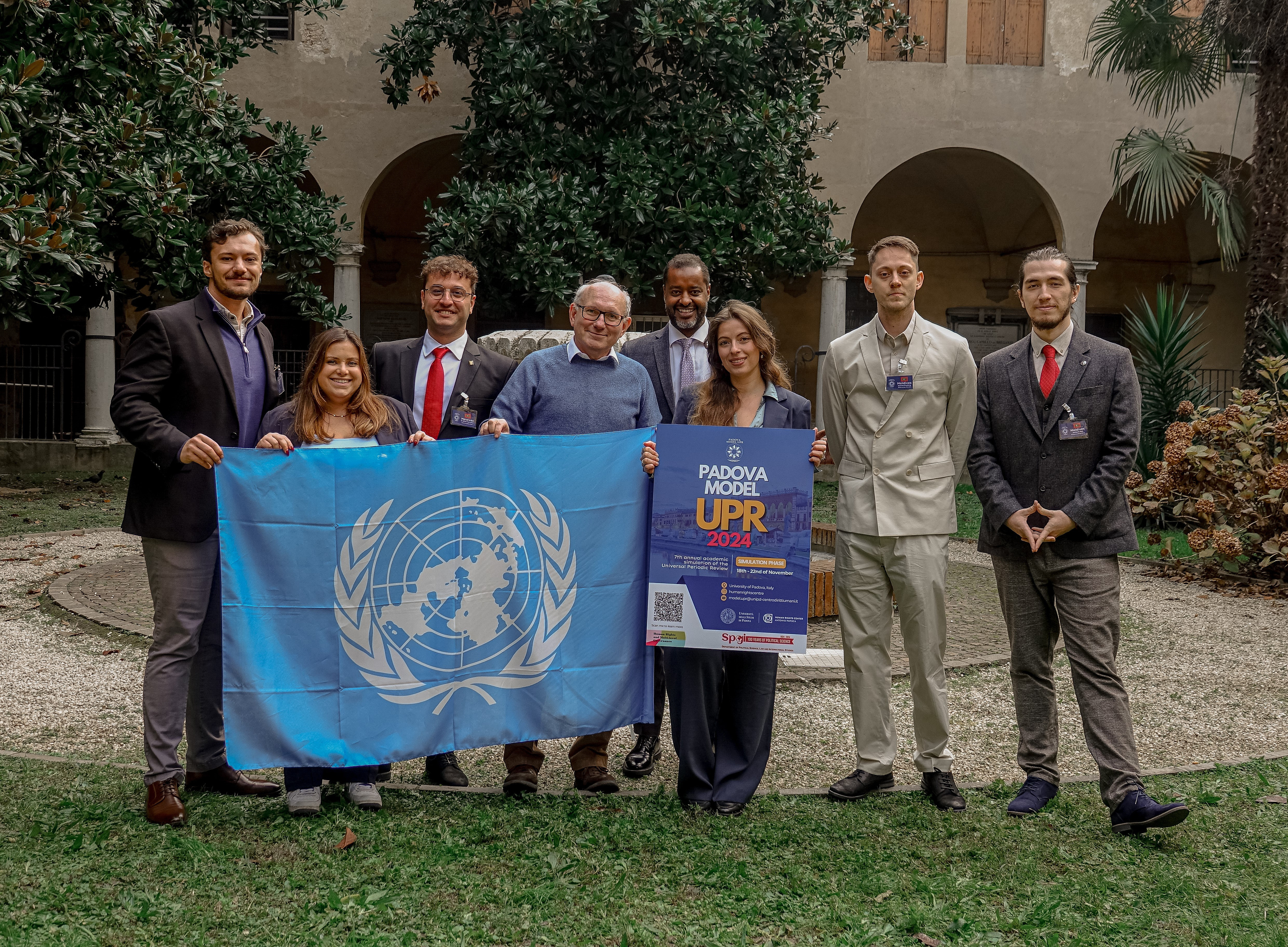The Universal Periodic Review (UPR) is the UN Human Rights Council’s core mechanism that allows states to review each other’s human rights situations every 4,5 years. In order to give students an in-depth understanding of the complexity of the UPR, the University of Padova organises an annual simulation of this unique mechanism. This experience enables students from around the globe that are interested in human rights, international relations, and diplomacy to take on the roles of states and civil society organisations (CSOs).
The University of Graz sends a maximum of 9 students divided into three sub-teams to the Padova Model UPR every year. In order prepare them for their roles as state’s delegations or CSO representatives, a preparation course is offered by the European Training and Research Centre for Human Rights and Democracy of the University of Graz (Uni-ETC).
Over the course of two months, students prepare written submissions and oral contributions, which culminates in a week-long simulation of all aspects of the UPR – from its preparation to its implementation phase. As such, groups participate in lobbying between CSOs and states, present the current human rights situation on the ground from various perspectives, and simulate the proceedings of the Working Group and Item 6 sessions of the UN Human Rights Council.
This year, two multinational teams from the University of Graz, acting as the Republic of the Maldives and the Kenya National Commission on Human Rights, participated in the Padova Model UPR. Both teams excelled in international diplomacy, advocacy, and authenticity. This hard work and dedication were ultimately honoured, as the teams won all awards available to them, which are the ‘Award for the Best State under Review’, the ‘Award for the Best Recommending State’, and the ‘Award for the Best NHRI’.
Congratulations to Ali Tanrioever, Clara Zausinger, Dakota Zehler, Janberk Nak, Natalie Montenegro, Nikola Lewicka, and Sascha Pressnig!
